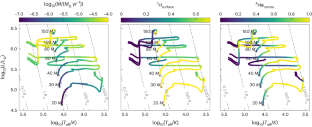2023-06-29 ロスアラモス国立研究所(LANL)
◆この手法は、欠陥生成のランダム性を除去し、シリコンカーバイドウエハでの精密な欠陥生成条件をリアルタイムで調整するフィードバックを提供します。これにより、マイクロエレクトロニクス業界で広く使用されている材料において、科学的進歩を妨げる要素を排除する効果があります。
◆量子欠陥の創造は、量子センサーや通信デバイスの実現に不可欠であり、本研究で示された手法は、産業規模で拡張可能な手法としての開発の可能性を示唆しています。
<関連情報>
- https://discover.lanl.gov/news/0729-quantum-applications/
- https://onlinelibrary.wiley.com/doi/10.1002/advs.202300190
その場フォトルミネッセンスフィードバックによる量子欠陥の高収率決定論的集束イオンビーム注入法 High-Yield Deterministic Focused Ion Beam Implantation of Quantum Defects Enabled by In Situ Photoluminescence Feedback
Vigneshwaran Chandrasekaran, Michael Titze, Anthony R. Flores, Deanna Campbell, Jacob Henshaw, Andrew C. Jones, Edward S. Bielejec, Han Htoon
Advanced Science Published: 23 April 2023
DOI:https://doi.org/10.1002/advs.202300190

Abstract
Focused ion beam implantation is ideally suited for placing defect centers in wide bandgap semiconductors with nanometer spatial resolution. However, the fact that only a few percent of implanted defects can be activated to become efficient single photon emitters prevents this powerful capability to reach its full potential in photonic/electronic integration of quantum defects. Here an industry adaptive scalable technique is demonstrated to deterministically create single defects in commercial grade silicon carbide by performing repeated low ion number implantation and in situ photoluminescence evaluation after each round of implantation. An array of 9 single defects in 13 targeted locations is successfully created—a ≈70% yield which is more than an order of magnitude higher than achieved in a typical single pass ion implantation. The remaining emitters exhibit non-classical photon emission statistics corresponding to the existence of at most two emitters. This approach can be further integrated with other advanced techniques such as in situ annealing and cryogenic operations to extend to other material platforms for various quantum information technologies.



